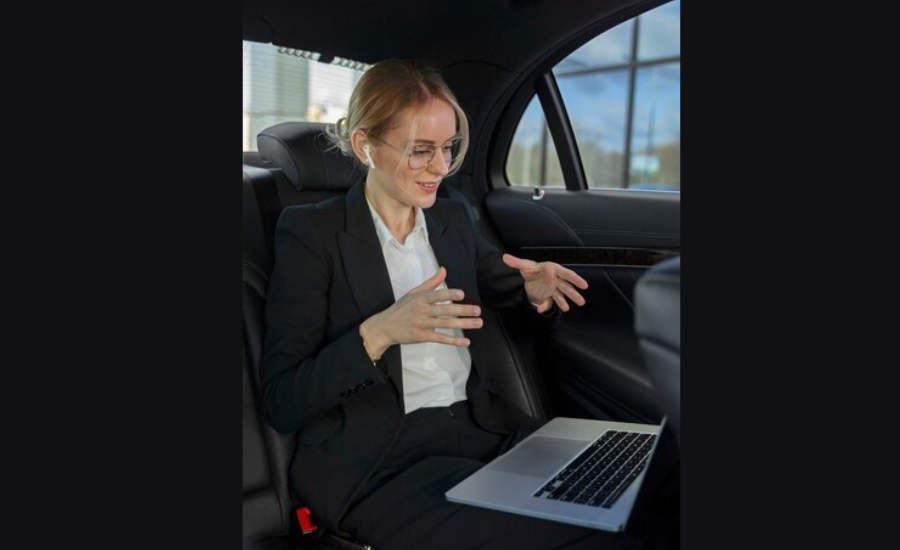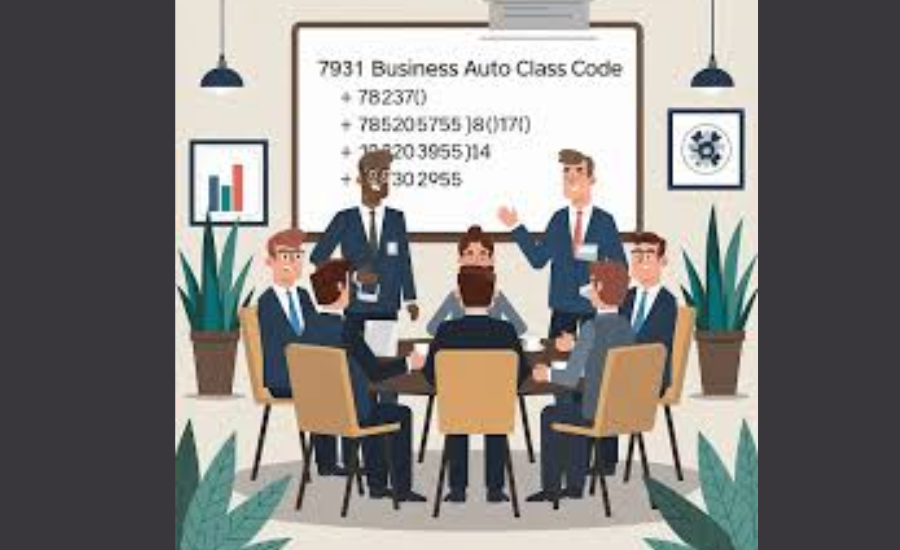Understanding business insurance can often feel overwhelming, especially when dealing with specific classifications that directly affect both coverage and premiums. One key classification to be aware of is the 7931 Business Auto Class Code. This particular code plays a crucial role for companies engaged in automobile-related activities, such as auto repair shops, car dealerships, and towing services. It helps insurance providers assess the risks associated with these businesses, allowing them to set premiums and tailor coverage options accordingly. For business owners, grasping the significance of this code is vital to ensure proper protection and avoid unexpected costs.
The 7931 Business Auto Class Code not only determines the cost of your insurance but also influences the scope of the coverage you receive. This classification gives insurers a clear understanding of your operational risks, which helps create a policy that meets your specific needs. Whether you’re running a small repair shop or a large dealership, knowing how this code affects your business ensures you are adequately covered while keeping premiums in line with your budget. Ultimately, being informed about the 7931 classification enables you to make smarter insurance decisions that can protect your business in the long run.
What Is The 7931 Business Auto Class Code?

The 7931 Business Auto Class Code is a specific classification used primarily in workers’ compensation insurance to identify businesses involved in automobile-related activities. This classification is crucial for insurance companies as it helps them evaluate the level of risk associated with businesses that rely on vehicles in their operations. By examining the nature of these businesses’ activities and the potential risks involved, insurers can more accurately determine appropriate premiums and the coverage needed to protect the business and its employees.
Typically, the 7931 Business Auto Class Code applies to companies such as auto repair shops, car dealerships, auto body shops, and towing services. Each of these businesses faces unique risks, from handling vehicle repairs to test-driving cars or managing roadside assistance. By assigning this code, insurance providers gain a clearer understanding of the operational risks, enabling them to craft tailored policies that suit the specific needs of each business. This ensures that companies receive adequate coverage while also helping to determine the cost of premiums based on their particular risk profile.
The Significance Of The 7931 Business Auto Class Code

Understanding the 7931 Business Auto Class Code is essential for businesses involved in automobile-related activities for several important reasons:
- Accurate Risk Assessment
Insurance providers rely on the 7931 Business Auto Class Code to accurately gauge the level of risk associated with businesses that use vehicles in their daily operations. This classification allows insurers to evaluate potential hazards and the likelihood of claims or losses, resulting in more precise premium calculations. Businesses are then charged premiums that reflect their actual risk profile, ensuring they aren’t overpaying or underinsured. - Tailored Insurance Policies
The 7931 Business Auto Class Code enables insurers to craft policies that are specifically designed to meet the unique needs of businesses in the automobile sector. Rather than a generalized approach to insurance, this classification allows companies to receive customized coverage that addresses the risks specific to their operations, such as repair work, test-driving vehicles, or towing services. This ensures a higher level of protection and minimizes the possibility of gaps in coverage. - Compliance with Industry Standards
Ensuring that a business is classified correctly under the 7931 Business Auto Class Code is essential for complying with industry regulations and legal requirements. Accurate classification helps businesses avoid regulatory issues and potential penalties while maintaining adherence to the appropriate standards for their specific industry. Compliance not only safeguards the business but also fosters trust with clients and stakeholders. - Effective Financial Planning
For businesses, understanding how the 7931 Business Auto Class Code impacts insurance premiums is vital for effective budgeting and financial planning. Knowing how this classification affects insurance costs helps companies forecast expenses more accurately, allocate resources efficiently, and plan for future growth. Businesses can make more informed decisions about managing their finances, ensuring that they have the proper insurance coverage without overspending.
The Impact Of The 7931 Business Auto Class Code On Insurance Costs

Insurance premiums for businesses are heavily influenced by the class code assigned to them, and for companies falling under the 7931 Business Auto Class Code, this impact is significant for several reasons:
- Risk-Based Premiums
Businesses categorized under the 7931 Business Auto Class Code will see their premiums vary depending on the specific risk factors tied to their operations. Companies engaged in high-risk activities, such as towing services or auto body repairs, may face higher insurance costs due to the increased likelihood of accidents, damages, or liability claims. In contrast, businesses with lower-risk operations, like auto dealerships with limited physical repairs, are likely to receive more favorable premium rates. - Tailored Coverage Options
The class code not only determines premium rates but also affects the types and scope of coverage available to a business. Insurers use the 7931 Business Auto Class Code to offer policies that are aligned with the unique risks associated with each company’s activities. For example, auto repair shops may need specialized coverage for equipment, tools, and customer vehicles, while dealerships might require protection for inventory on the lot. This tailored approach ensures that businesses receive insurance coverage that specifically addresses their operational needs and potential exposures. - Influence of Claims History
A company’s claims history plays a crucial role in determining its insurance premiums. Businesses with frequent or high-value claims are seen as higher risk by insurers, which often results in increased premium rates. The 7931 Business Auto Class Code is used in conjunction with a company’s claims record to assess the overall risk and set appropriate premiums. A business with a clean claims history may benefit from lower premiums, while one with repeated claims may face higher costs, reflecting the greater risk they present to the insurer.
Examples Of Businesses Covered By The 7931 Business Auto Class Code
The 7931 Business Auto Class Code encompasses a wide range of automobile-related businesses, each with its unique risks and insurance needs. These businesses include:
- Auto Repair Shops
Auto repair shops are an essential part of the 7931 classification, as they provide a wide array of services, from routine maintenance like oil changes to more complex repairs involving engine diagnostics, brake systems, and transmission overhauls. - Car Dealerships
Car dealerships that sell and lease vehicles, as well as provide services like vehicle financing or repairs, fall under the 7931 Business Auto Class Code. Dealerships encounter a unique set of risks, including damage to vehicles during test drives, theft or vandalism of vehicles stored on the lot, and liability during the sale process. - Auto Body Shops
Businesses that specialize in auto body repair, such as fixing dents, replacing parts after accidents, and handling vehicle collision repairs, are also categorized under the 7931 class code. Since these shops deal with vehicles that have sustained significant damage, they face heightened risks, particularly around the repair of structural integrity and safety features. - Towing Services
Towing companies, which offer roadside assistance and vehicle recovery services, are another business type classified under the 7931 code. The nature of towing services presents several risks, including roadside accidents, damage to the vehicles being towed, and the potential for injuries while loading or unloading vehicles. Towing companies need comprehensive insurance that addresses these specific hazards, ensuring they are covered for both liability issues and property damage.
Selecting The Proper Class Code For Your Company
Choosing the correct class code is a crucial step in securing the right insurance coverage for your business. It directly influences the types of risks your policy will cover and how much you’ll pay in premiums. To ensure you’re using the correct class code for your business, consider the following:
- Consult with Insurance Professionals
Working with experienced insurance professionals is one of the most effective ways to determine the correct class code. These experts can thoroughly assess your business operations, ensuring you’re accurately classified. They provide valuable guidance by analyzing your industry, identifying relevant risks, and recommending the appropriate classification. This ensures your coverage matches the specific needs of your business, protecting you from potential liabilities. - Evaluate Your Business Operations
Take a close look at the services your business provides and the day-to-day activities it performs. Comparing these details with the descriptions of various class codes will help you select the one that aligns most closely with your operations. A thorough understanding of your business’s core activities will ensure that the chosen class code reflects the true nature of your work, resulting in better coverage and fewer surprises in the event of a claim. - Regularly Update Your Class Code
As your business grows or shifts its focus, your class code may become outdated, potentially affecting your insurance coverage. It’s important to periodically review your class code and adjust it to reflect any changes in your operations. Regular updates will ensure that your insurance policy stays aligned with your business’s current risks, keeping you properly protected as your company evolves.
Common Misconceptions About The 7931 Business Auto Class Code
There are several common misconceptions surrounding the 7931 Business Auto Class Code that can lead to misunderstandings about how it works and impacts insurance coverage:
- Not All Auto-Related Businesses Are Classified the Same
A widespread belief is that all businesses related to automobiles fall under the same class code. In reality, different types of businesses—such as auto repair shops, car dealerships, and towing services—each have their own specific classification. - Higher Class Code Does Not Always Mean Higher Risk
Another misconception is that a higher class code automatically means your business is more dangerous or risk-prone. While the class code is used to assess potential risks and assign premiums, it serves primarily as a categorization tool rather than an indicator of absolute risk. A business with a higher code might simply operate in a more specialized field rather than one with significantly higher hazards. - Class Codes Are Not Fixed
Contrary to the belief that class codes are permanent, they can change over time due to shifts in industry practices, regulatory updates, or changes in business operations. It’s important to stay up-to-date with any modifications to these classifications to ensure your business remains accurately represented in its insurance policies. Periodically reviewing your class code ensures that it still reflects your current activities and risk profile, preventing potential issues with coverage.
FAQs
1. What is the 7931 Business Auto Class Code?
It helps insurers evaluate risks and determine coverage and premiums.
2. Why is the 7931 Business Auto Class Code important?
This code allows insurers to accurately assess risks, leading to tailored insurance policies and premium calculations. It also helps businesses stay compliant with regulations and plan for insurance costs.
3. How does the 7931 Business Auto Class Code impact insurance premiums?
The code affects premiums by classifying businesses based on their risk levels. Higher-risk activities may result in higher premiums, and factors like coverage options and claims history also play a role.
4. What types of businesses fall under the 7931 Business Auto Class Code?
Businesses like auto repair shops, dealerships, auto body shops, and towing services typically fall under the 7931 classification due to their involvement with vehicle-related operations.
5. Can my class code change as my business grows?
Yes, you should update your class code as your business evolves. Regular updates ensure your insurance reflects the current nature of your operations and risks.
Conclusion
The 7931 Business Auto Class Code is crucial for businesses involved in automobile-related activities, as it influences insurance premiums, coverage, and regulatory compliance. Choosing the right class code ensures your insurance accurately reflects your operations and risks. Regularly reviewing your classification and consulting with insurance experts will help keep your coverage up to date and aligned with any changes in your business, helping you manage insurance costs effectively.
Stay informed! Visit us for the latest news and updates: Web Of Buzz!




